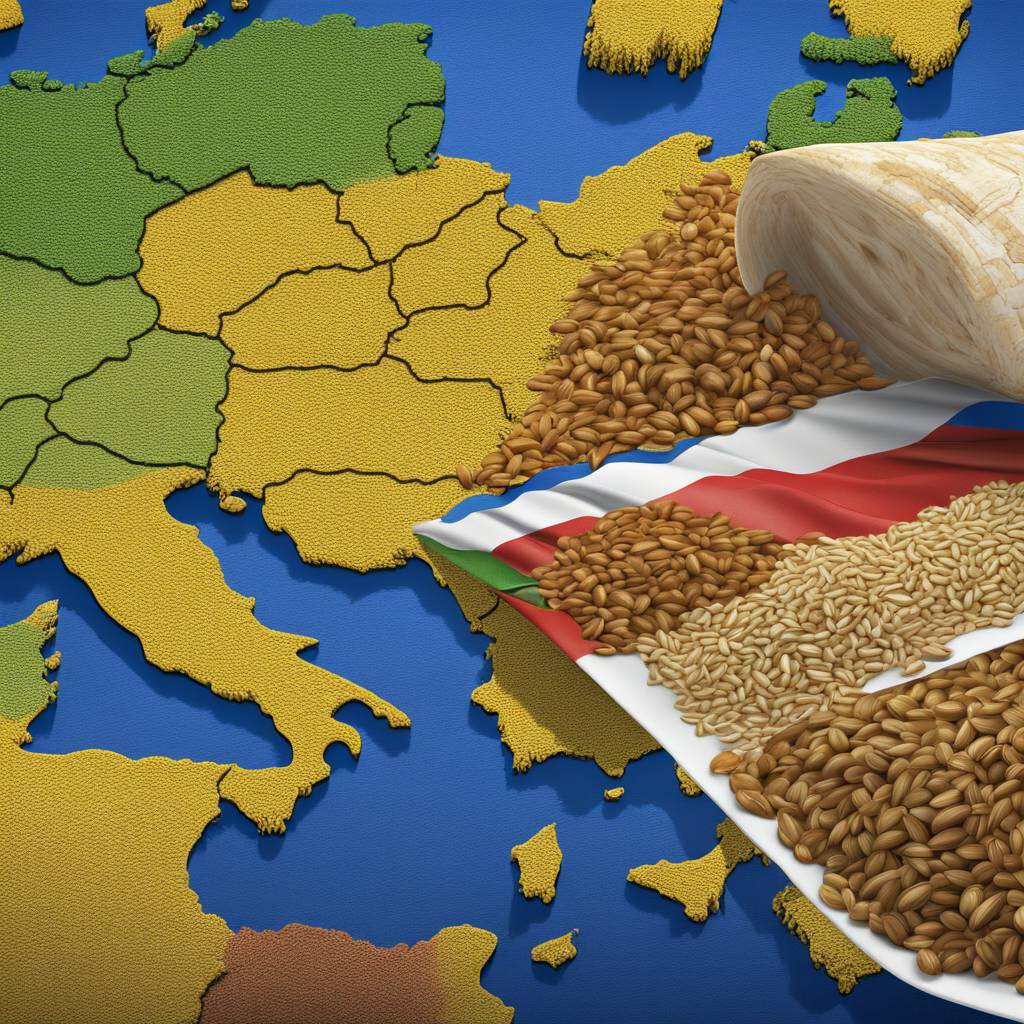The European Union has reached a crucial agreement to extend free-trade measures with Ukraine until June 2025. However, the outcome of the negotiations has been described as a hardened position compared to the previous solidarity promised to the war-torn nation. The extension of the special regime will include more safeguards on “sensitive” products such as poultry, eggs, sugar, oats, maize, groats, and honey. Member states will be able to apply “remedial measures” in case of market turmoil, potentially leading to bans on a national basis. The beefed-up provisions come amidst farmer protests across Europe, with some accusing Ukrainian counterparts of unfair competition, leading to opposition from countries such as Poland, Hungary, Slovakia, France, Italy, and Austria.
Ukraine is a major global exporter of essential commodities like sunflower oil, barley, maize, and wheat. The country’s ability to export goods was severely impacted by Russia’s war and blockade of the Black Sea. The dispute over Ukrainian agricultural imports intensified in April 2023 when Poland, Hungary, and Slovakia imposed bans on certain products. This led to a tense standoff and multiple attempts to resolve the situation before the World Trade Organization. The European Commission proposed extending free-trade measures until June 2025 with significant changes to address market disturbances and sensitive products being imported from Ukraine.
Negotiations between the Council and Parliament resulted in key tweaks to the text, including adding oats, maize, groats, and honey to the list of sensitive products. Tariffs will now be introduced in 14 days instead of 21, and there will be enhanced monitoring of cereals to detect market turmoil. However, the amendments did not fully satisfy the demands of countries like Poland and France, leading to the collapse of the provisional deal. A compromise was reached on Wednesday, expanding the reference period until the second semester of 2021 but excluding wheat from the list of sensitive products.
The responsibility to break the impasse fell on Belgium, the current holder of the Council’s rotating presidency. The compromise text submitted by Belgium paved the way for approval later in the day, emphasizing a balanced approach between supporting Ukraine and protecting EU agricultural markets. The deal still needs to be negotiated with the European Parliament and ratified by co-legislators, leaving the possibility of last-minute surprises. The EU’s lifting of tariffs and quotas on Ukrainian imports in June 2022 aimed to support the country’s revenue and ease transit via land routes following Russia’s actions. However, the special regime led to protests from local farmers concerned about low-cost Ukrainian imports affecting prices and storage capacities.
The ongoing dispute over Ukrainian agricultural imports has highlighted the challenges of balancing support for Ukraine with protecting EU agricultural markets. The extended free-trade measures with Ukraine until June 2025 now include stricter safeguards on sensitive products and provisions for remedial measures in case of market turmoil. The negotiations and compromises between member states and the European Parliament reflect the complexity and sensitivity of the issue, with the need to find a delicate balance to address concerns from all sides. Moving forward, further discussions and ratification processes will be necessary to formalize the agreement and address any remaining contentious issues.













